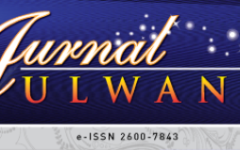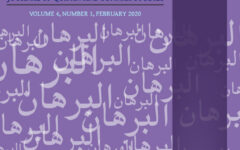Sayyid Ismail Shihabuddin: The Prism of Visionary Leadership
December 17, 2024 2024-12-17 7:13Sayyid Ismail Shihabuddin: The Prism of Visionary Leadership
Sayyid Ismail Shihabuddin (1936-2010), who is also locally known as Panoor Thangal ,is a leader, great scholar, author and reformer from South India. He left behind a great legacy of seminal works in Arabic that are worthy of research attention, and some of them are used in several universities in the Gulf countries. His proficiency in Arabic is explicit in these works. He wrote in different specialisations such as Quranic exegesis, hadīth, jurisprudence, logic, theology, history among others. His roles as a teacher, theologian, and philosopher made him a prolific writer in Arabic. He left behind a remarkable legacy of intellectual contributions, which remain testimonies of his dedication, hard work, erudition and scholarship.
He mastered Arabic by regular reading Arabic magazines published from Gulf countries. He also kept a close relationship with Arab scholars, writers and philosophers and whenever he returns from overseas, he made sure to bring several books in Arabic and English. Releventization of Islamic knowledge was his main objective in mastering Arabic. Therefore, he presented the major works of classical Islamic scholars in contemporary style and attractive format. He appreciated the position of Arabic in Islam as well as the international audience. Arabic is the language of the Qur’ān and the Prophet Muhammad (pbuh) (KKN Kuru,p (39-42).
His tireless efforts in writing books were not motivated by promotion or any material benefits; rather, it was for helping his students and disseminating the knowledge in a meaningful way. He consistently made himself busy engaging with educational activities.
His main aim in writing books is to assist teachers and students in mastering that particular subject in simple and accessible ways. As far as his quranic exegesis is concerned, one of the reasons is his realisation that fabricated explanations and Isralite stories are injected in some book of tafsīr, which are powerful to cause damage to Islam and the Prophet. In addition, he wanted to read the Qur’ān in the light of discoveries of modern science and to relevantize it so that the people can comprehend its message and relevance in a better way. In his write-ups, he mainly focused on the numerous miracles in the creation of this world and the unique power of Almighty, keeping in line with reasonable and logical articulation.
The famous historian of Kerala, K.K.N. Kurup expects that revitalising the legacy of Sayyid Ismail Shihabuddin , for example, his tafsīr, can strengthen the cultural relationship, academic exchanges and dissemination of knowledge between Gulf countries and Kerala.
Below is given the names of Arabic books written by Sayyid Ismail Shihabuddin with a brief introduction about each of them.
ʿAlā Hāmish al-Tafāsīr: Taʿlīqāt ʿalā Tafsīr al-Jalālayn’
Category: Tafsir
Volumes: 7
Publisher: Jamʿiyyat Ṭullāb Nibrās al-ʿUlamā’, Jāmiʿah al-Zahrā, Kerala, India
Year: 2007
The magnum opus of Sayyid Ismail Shihabuddin is the ʿAlā Hāmish al-Tafāsīr: Taʿlīqāt ʿalā Tafsīr al-Jalālayn’. This book proves his ingenuity and skill in the art of classification and composition of a scholarly work. Being a non-Arab, though writing a comprehensive tafsīr of the Qur’ān is challenging, he accomplished it. He is the only scholar from Kerala who holds the record of writing a complete and detailed tafsīr of the Qur’ān in Arabic in the known history so far. He dedicated nine years from 1419 to 1428 AH corresponding to the year 1998 to 2007 AD to complete this great work.
This tafsīr comprises seven huge volumes, which is prepared benefitting from the classical and contemporary interpretations. It includes references from the tafsīr of Jāmiʿ al-Bayān of al-Ṭabarī (d. 923 AD) to the exegesis of Sheikh Tantawi (d. 2010). It also incorporates quotes from modern books and scientific works.
Ādāb al-Muslim fī Manhaj al-Islām
Category: Tasawwuf
Publisher: Jamʿiyyat Ṭullāb Nibrās al-ʿUlamā’, Jāmiʿah al-Zahrā, Kerala, India
It is a book of Islamic ethics. It discusses ethical aspects a Muslim should uphold and extend towards his family, children, properties, etc.
Ṣafwat al-Kalām fī Mabādi’ ʿAqā’id al-Islām
Category: Aqidah
Publisher: Jamʿiyyat Ṭullāb Nibrās al-ʿUlamā’, Jāmiʿah al-Zahrā, Kerala, India
It discusses Islamic theology. It deals with faith, resurrection, ākhirah, awliyā’ and Sufi rituals. It is prepared for helping students understand the essential theological matters of Islam, and he has included easy examples to explain the logic thereof.
Al-Manṭiq fī Sharaḥ al-Tahdhīb
Category: Mantiq (logic)
Publisher: Jamʿiyyat Ṭullāb Nibrās al-ʿUlamā’, Jāmiʿah al-Zahrā, Kerala, India
Year: 1422 AH
It is an explanation of the book of logic written by Saʿd al-Din al-Taftāzānī, in which he explains the definition of logic, its purpose, history, and other topics of logic. It is also written in an easy way in order to facilitate students and teachers of this subject.
Al-Kalām fī Sharaḥ al-ʿAqā’id al-Shafiʿiyyah
Category: Aqidah
Publisher: Jamʿiyyat Ṭullāb Nibrās al-ʿUlamā’, Jāmiʿah al-Zahrā, Kerala, India
It is the complete commentary of Sharḥ al-ʿAqā’id by Abū Ḥasan ʿUmar al-Nasafī. In this book, he responds to the arguments of atheists, rationalists and unbelievers, and it includes a discussion about black magic, demons, and other aspects.
Niqātun min Tārīkh al-Islām
Category: Tarikh (Islamic history)
Publisher: Jamʿiyyat Ṭullāb Nibrās al-ʿUlamā’, Jāmiʿah al-Zahrā, Kerala, India
It attempts to tell the history of the prophets from the first Prophet Adam (peace be upon him) to the Prophet Muhammad (peace be upon him).
Al-Nibrās fī Maslak al-Fiqh al-Shāfiʿī
Category: Fiqh
Volumes: Three
Publisher: Jamʿiyyat Ṭullāb Nibrās al-ʿUlamā’, Jāmiʿah al-Zahrā, Kerala, India
Year: 2006
The three volumes deal with various juristic chapters in al-Fiqh al-Shāfiʿī, including purity, prayer, zakat, fasting, jihad, transactions, inheritance, wills, marriage, divorce, penal law, oaths, sacrifices, hunting, judiciary, testimony and other jurisprudence.
Al-Madārij fī Taqrīr al-Ghāyat wa al-Taqrīb
Category: Fiqh
Publisher: Jamʿiyyat Ṭullāb Nibrās al-ʿUlamā’, Jāmiʿah al-Zahrā, Kerala, India
It is the commentary of Matn al-Ghāyat wa al-Taqrīb by Abū al-Shujāʿ Aḥmad al-Aṣfahānī.
Al-Mirqāt fī ʿAqīdat al-Islām
Category: Aqidah
Publisher: Jamʿiyyat Ṭullāb Nibrās al-ʿUlamā’, Jāmiʿah al-Zahrā, Kerala, India
It is also a small book about the belief system of Islam. It is also prepared mainly for assisting teachers and students who learn about the ʿaqīdah and remove the doubts and ambiguities about theology from people’s minds.
Shadharāt al-Dhahab
Category: Tarikh (Islamic history)
Publisher: Jamʿiyyat Ṭullāb Nibrās al-ʿUlamā’, Jāmiʿah al-Zahrā, Kerala, India
It is a book of Islamic ethics to be upheld in various walks of Muslim life, particularly in interpersonal relationships.
Collection of Arabic Khutbas
Sayyid Ismail Shihabuddin was a skilled orator with eloquence, accuracy in expression, and precise brevity in the statement. In general, khātib in Kerala use al-Khuṭab al-Nabatiyyah for Friday sermons. Unlike his peer scholars, he wrote himself and gave sermons (khuṭbah) in Arabic at the Jami Mosque of Panoor every Friday since 1992. He had a collection of six hundred written khuṭbahs. These khuṭbahs are of different topics with the contemporary relevance of that time. In Kerala, Friday khutbas are generally delivered in Arabic, except the mosques that follow Wahhabism (K.K.N. Kurup,2012).
Leadeshrip for a Social Reform
Sayyid Ismail Shihabuddin has significantly contributed to the cause of raising the profile of the Muslim community. He brought his sincere efforts into the field of education. From the early 1970s, he focused on integrated education, and Jamia al-Zahra became its realisation at an institutional level. Now Az-Zahra University has completed 40 years of service in the academic and cultural life of the Muslim community of Kerala.
Jamia Al-Zahra is a group of colleges, institutes, schools, charitable projects, and humanitarian services. Jamia Zahra is now a well-known educational institution. It provides education from pre-school to post-graduate levels through various institutions (M.A. Salam, 2018).
- Zahra College of Islamic Sciences
- Zahra High School and Higher Secondary School
- Zahra College of Art & Sciences
- Zahra Public School
- Zahra Centre School, Perod
- Tharbiya College for Women
- Other Institution (Zahra Research Library, Thanakkottur Up School, Muhiyudheeen Mosque, and Zahra Kids Garden at Puliyavu.)
As a scholar, he is distinguished among Kerala scholars because of his expertise in various subjects, a good number of teachers, being a member of the Sayyid family, equal involvement in academia and activism, linguistic skills, exclusive writing in Arabic, remarkable research in classical and modern works, close contact with Arab scholars and philosophers, relevantization of Islamic knowledge, community engagement, authorship of complete tafsir in Arabic, publication of tafsīr from the Arab country, sufi personality, exclusion from public programs and parties, interest in science subjects.
He viewed that though the world has gone far in terms of technological heights on the one side, it has gone deep in terms of moral deterioration. Science and technology were supposed to be used for the progress of humanity, but it has ended up causing more adverse effects to humanity. Against this background, he thought it is the high need to produce a creative and dynamic Muslim youth with a strong background in Islamic sciences but well-versed in human knowledge, science, and technology. As a result, his initial plan was to create an opportunity for learning the sharīah without disrupting schooling or education at the colleges.
Despite his seminal contributions to Islam in Kerala and beyond, he is not a well-known figure even in Kerala. Probably, his unpopularity is due to some reasons: firstly, his major works are in the Arabic language, which is not accessible for ordinary people in Kerala. Secondly, he was not working jointly with any leading organisations/religious platforms in the state. He chose his style and team, which also resulted in less popularity. Thirdly, he was against the publicity or fame for him as a person; rather he intended to reach out to people through his works, mainly international audience.
Sayyid Ismail Shihabuddin is one of the pioneers of integrated education in Kerala. He prepared a syllabus in which he included both Aqlī and Naqlī knowledge (Human and Revealed knowledge). He realised that only such a syllabus could nurture a generation who can understand the modern world’s undercurrents and communicate with people in a most understood language. He thought that integration would broaden the dimensions of da’wah in the contemporary world.
His initial aim was to facilitate his students to learn the major texts in contemporary, coherent, and most understood ways. In this attempt, he attempted to relevantize them and present the issues connecting with contemporary matters. He dedicated himself to the purpose of the educative mission via teaching, writing and running institutions. He got a lot of tawfiqh and divine agency to fulfil these works in a magnanimous way.
Through his writings, he wanted to elevate the station of ummah in terms of education and philosophy and to equip them to address the needs of time. He wanted to protect the fellow-people from the potential threats of concomitant consequences of modern education and technological advancements. He believed that science and technology should lead people to learn and comprehend more about the countless wonders in the creation of this universe. As a result, people can understand more about the Creator and build a genuine conviction about him, thus reaching a strong tawhidic paradigm. However, the current trend is just the opposite because science is widely used to spread corruption and people are morally deteriorated. He propagated to study the Quran in the latest scientific discoveries which will prove the imitability of the Quran and uniqueness of Quranic messages. In addition, he advocated for integrated education of revelation and reason, as one of the vital ways to improve the situation of ummah.





